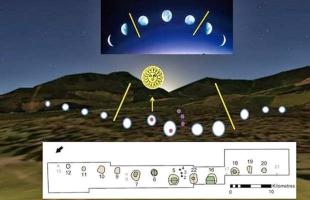Copy Link
Add to Bookmark
Report
AIList Digest Volume 2 Issue 132

AIList Digest Saturday, 6 Oct 1984 Volume 2 : Issue 132
Today's Topics:
Bindings - Query about D. Hatfield,
Applications - AI and Business,
AI Literature - List of Sources,
Academia - Top Graduate Programs,
Conference - Fifth Generation at ACM 84,
AI Tools - OPS5 & YAPS & Window Systems & M.1,
Scientific Method - Induction,
Seminar - Natural Language Structure
----------------------------------------------------------------------
Date: Wed, 3 Oct 1984 15:54 EDT
From: MONTALVO%MIT-OZ@MIT-MC.ARPA
Subject: Query about D. Hatfield
Wed., Aug. 29 Computer Science Seminar at IBM-SJ
10:00 A.M. WYSIWYG PROGRAMMING
D. Hatfield, IBM Cambridge Scientific Center
Host: D. Chamberlin
This message appeared some time ago. [Can someone provide]
any pointers to the speaker, D. Hatfield? Does he have any papers
on the same subject? Thanks.
Fanya Montalvo, MIT, AI Lab.
------------------------------
Date: 3 Oct 84 8:39:05-PDT (Wed)
From: hplabs!sdcrdcf!sdcsvax!noscvax!bloomber @ Ucb-Vax.arpa
Subject: Re: AI for Business
Article-I.D.: noscvax.641
I would also be interested in pointers to books or articles that
emphasize the business (preferably practical) uses of AI.
Thanks ... Mike
--
Real Life: Michael Bloomberg
MILNET: bloomber@nosc
UUCP: [ihnp4,akgua,decvax,dcdwest,ucbvax]!sdcsvax!noscvax!bloomber
------------------------------
Date: Wed, 3 Oct 84 00:05 CDT
From: Jerry Bakin <Bakin@HI-MULTICS.ARPA>
Subject: Keeping up with AI research
I am interested in following trends and research in AI. What do active
AI'ers feel are the important journals, organizations and conferences?
Thanks,
Jerry Bakin -- Bakin@HI-Multics
[I have sent Jerry the list of journals and conferences compiled by
Larry Cipriani and published in AIList V1 N43. In short,
AI Magazine
AISB Newsletter
Annual Review in Automatic Programming
Artificial Intelligence
Behavioral and Brain Sciences
Brain and Cognition
Brain and Language
Cognition
Cognition and Brain Theory
Cognitive Psychology
Cognitive Science
Communications of the ACM
Computational Linguistics
Computational Linguistics and Computer Languages
Computer Vision, Graphics, and Image Processing
Computing Reviews
Human Intelligence
IEEE Computer
IEEE Transactions on Pattern Analysis and Machine Intelligence
Intelligence
International Journal of Man Machine Studies
Journal of the ACM
Journal of the Assn. for the Study of Perception
New Generation Computing
Pattern Recognition
Robotics Age
Robotics Today
SIGART Newsletter
Speech Technology
IJCAI International Joint Conference on AI
AAAI American Association for Artificial Intelligence
TINLAP Theoretical Issues in Natural Language Processing
ACL Association of Computational Linguistics
AIM AI in Medicine
MLW Machine Learning Workshop
CVPR Computer Vision and Pattern Recognition (formerly PRIP)
PR Pattern Recognition (also called ICPR)
IUW Image Understanding Workshop (DARPA)
T&A Trends and Applications (IEEE, NBS)
DADCM Workshop on Data Abstraction, Databases, and Conceptual Modeling
CogSci Cognitive Science Society
EAIC European AI Conference
Would anyone care to add a list of organizations? -- KIL]
------------------------------
Date: Wed, 3 Oct 84 13:31:08
From: Bob Woodham <woodham%ubc.csnet@csnet-relay.arpa>
Subject: Top Graduate Programs
I cannot resist offering my contribution but first three comments:
1. A strict linear ordering is rather meaningless so I've simply listed
schools alphabetically within two broad categories.
2. Not surprisingly, given my location, I've expanded things to
all of North America. There are good programs outside the continent
but I'm not qualified to comment.
3. If your favourite school is missing, let that indicate my ignorance
rather than a slight. Since this is roughly the advice I give our own
students, I'd like to hear more.
Category I: Major Strength in all Areas of AI (alphabetic order)
CMU, MIT, Stanford
Category II: Major Strength in at least one Area of AI, adequate overall
(alphabetic order)
Illinois, McGill, Penn, Rochester, Rutgers, Texas (at Austin), Toronto,
UBC, Yale
There are other schools with strengths, or emerging strengths, that are
worth considering. Thankfully, I'm already beyond the requested number
of ten. Any of the above schools could be an excellent choice, depending
on the particular area of interest.
------------------------------
Date: 3 Oct 1984 14:24-PDT
From: scacchi%usc-cse.csnet@csnet-relay.arpa
Subject: ACM 84
Just a short note to point out that at the 1984 ACM Conference in San
Francisco has a number of sessions on AI and Fifth Generation
technologies. In particular, there are at least three sessions that
focus on the broader social consequences that might arise from
the widespread adoption and use of AI systems. The three sessions
include:
1. "The Workplace Impacts of Fifth Generation Computing -- AI and Office
Automation" on tuesday (9 Oct 84) morning
2. "Social and Organizational Consequences of New Generation Technology"
on tuesday afternoon.
3. "Social Implications of Artificial Intelligence" on wednesday
afternoon.
If you are able to attend the ACM 84 conference and you are interested
in discussing or learning about social analyses of AI technology
development, then you should try to attend these sessions.
-Walt-
(Scacchi@Usc-cse via CSnet)
------------------------------
Date: 2 Oct 84 16:03:48-PDT (Tue)
From: hplabs!hpda!fortune!wdl1!jbn @ Ucb-Vax.arpa
Subject: Re: obtaining OPS-5
Article-I.D.: wdl1.458
OPS-5 is obtained from Charles Forgy at CMU, reached at the following
address. Do not contact me regarding this.
Forgy, Charles L. (CLF) CHARLES.FORGY@CMU-CS-A
Carnegie-Mellon University
Computer Science Department
Schenley Park
Pittsburgh, Pennsylvania 15213
Phone: (412) 578-3612
------------------------------
Date: Wed, 3 Oct 84 23:39:58 edt
From: mark@tove (Mark Weiser)
Subject: ops5 and yaps.
For those of you interested in ops5, don't forget YAPS. Yaps was
described by Liz Allen of Maryland at the '83 AAAI.
Yaps, yet another production system, uses Forgy's high speed
short cuts for left hands sides which fall into ops5's limited
legal lhs, but yaps also allows fully general left hand sides.
Yaps second advantage over ops5 is that it is imbedded in
the Franz lisp flavors system (also from Maryland), so that
one can have several simultaneous yaps objects and send them
messages like add-a-rule, add-object-to-database, etc.
For more information, mail liz@maryland.
Spoken: Mark Weiser ARPA: mark@maryland
CSNet: mark@umcp-cs UUCP: {seismo,allegra}!umcp-cs!mark
------------------------------
Date: 1 Oct 84 18:21:18-PDT (Mon)
From: hplabs!hpda!fortune!wdl1!jbn @ Ucb-Vax.arpa
Subject: Re: Windows and Expert Systems
Article-I.D.: wdl1.451
I've noticed this lately too; I've also seen the claim that ``windows were
developed ten years ago by the AI community'', but the early Alto effort at
PARC, which I saw demonstrated in 1975 by Allen Kay, was not AI-oriented; they
were working primarily on improved user interfaces, including window systems.
John Nagle
------------------------------
Date: 30 Sep 84 8:30:02-PDT (Sun)
From: decvax!mcnc!unc!ulysses!burl!clyde!watmath!water!rggoebel@Ucb-Vax.arpa
Subject: Re: Clarification Regarding Teknowledge's M.1 Product
Article-I.D.: water.20
I've just read what amounts to an advertisement for Teknowledge's
M.1 software product. I can't believe there isn't something to
be criticized in a product that comes from such an infant technology?
I'd be interested to know what's wrong with M.1? Will Teknowledge
give it away to universities to teach students about expert systems?
Is SRI-KL using M.1 for anything (note origin of original message)?
On a lighter note, what is novel about a software system that supports
``variables?''
Randy Goebel
Logic Programming and Artificial Intelligence Group
Computer Science Department
University of Waterloo
Waterloo, Ontario, CANADA N2L 3G1
UUCP: {decvax,ihnp4,allegra}!watmath!water!rggoebel
CSNET: rggoebel%water@waterloo.csnet
ARPA: rggoebel%water%waterloo.csnet@csnet-relay.arpa
[I am not aware of any SRI use of M.1, nor do I know of anyone at SRI
who has a financial interest in it. Many people around the country
have mailboxes on systems where they once worked or otherwise have
incidental access; I assume that is the case here. An SRI group has
recently come out with its own micro-based expert system toolkit,
SeRIES-PC, a PROSPECTOR derivative. -- KIL]
------------------------------
Date: 1 Oct 84 22:21:20-PDT (Mon)
From: hplabs!hpda!fortune!wdl1!jbn @ Ucb-Vax.arpa
Subject: Re: Re: Clarification Regarding Teknowle
Article-I.D.: wdl1.453
I'd like to see them offer a training version of the program for $50 or so
which allowed, say, a maximum of 50 rules, enough to try out the system but
not enough to implement a production application. This would get the tool
(and the technology) some real exposure.
John Nagle
------------------------------
Date: Wed 3 Oct 84 00:05:12-PDT
From: Tom Dietterich <DIETTERICH@SUMEX-AIM.ARPA>
Subject: re: Induction
Well I guess I don't understand Stan Shebs' point regarding induction
very well. I agree with everything he said in his message: It is
indeed possible to generate all possible generalizations of some fact
within some fixed, denumerable domain of discourse. The problem of
induction is to infer PLAUSIBLE beliefs from a finite set of examples.
Shebs is correct in saying that from any finite set of examples, a
very large (usually infinite) set of generalizations can be generated.
He is also correct in saying that--in the absence of any other
knowledge or belief--all of these generalizations are equally
plausible. The problem is that in common-sense reasoning, all of
these generalizations are not equally plausible. Some seem (to
people) to be more plausible than others. This reflects some hidden
assumptions or biases held by people about the nature of the common
sense world.
------------------------------
Date: Thu, 4 Oct 84 15:17:51 pdt
From: chertok%ucbkim@Berkeley (Paula Chertok)
Subject: Seminar - Natural Language Structure
BERKELEY COGNITIVE SCIENCE PROGRAM
Fall 1984
Cognitive Science Seminar -- IDS 237A
TIME: Tuesday, October 9, 11 - 12:30
PLACE: 240 Bechtel Engineering Center
DISCUSSION: 12:30 - 2 in 200 Building T-4
SPEAKER: Gilles Fauconnier, Linguistics Dept, UC San
Diego & University of Paris
TITLE: Roles, Space Connectors & Identification
Paths
ABSTRACT: Key aspects of natural language organization
involve a general theory of connections
linking mental constructions. Logical and
structural analyses have overlooked this
important dimension, which unifies many
superficially complex and disparate
phenomena. I will focus here on the many
interpretations of descriptions and names,
and suggest a reassessment of notions like
rigidity, attributivity, or ``cross-world
identification.''
------------------------------
End of AIList Digest
********************






















